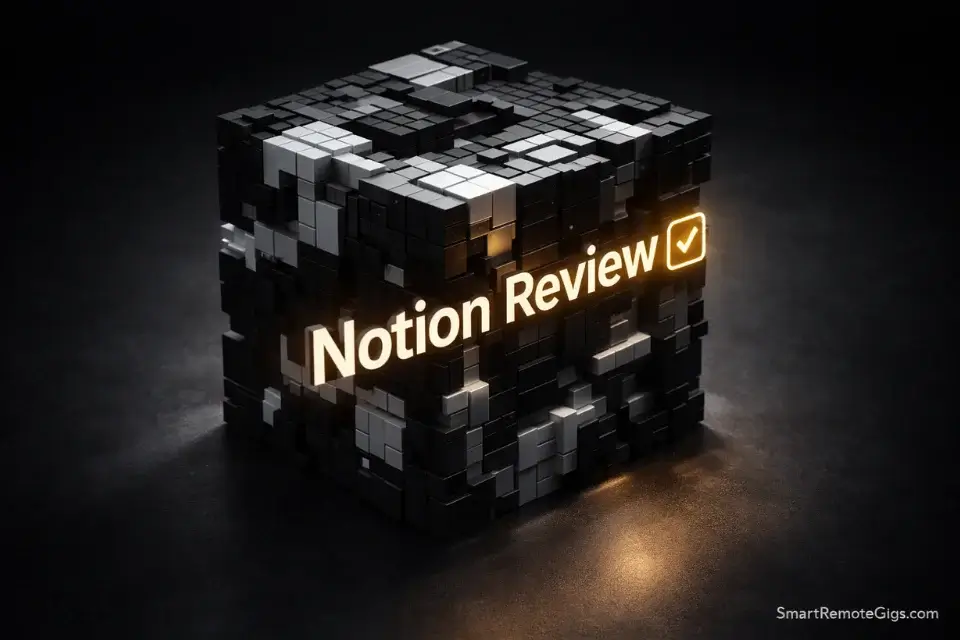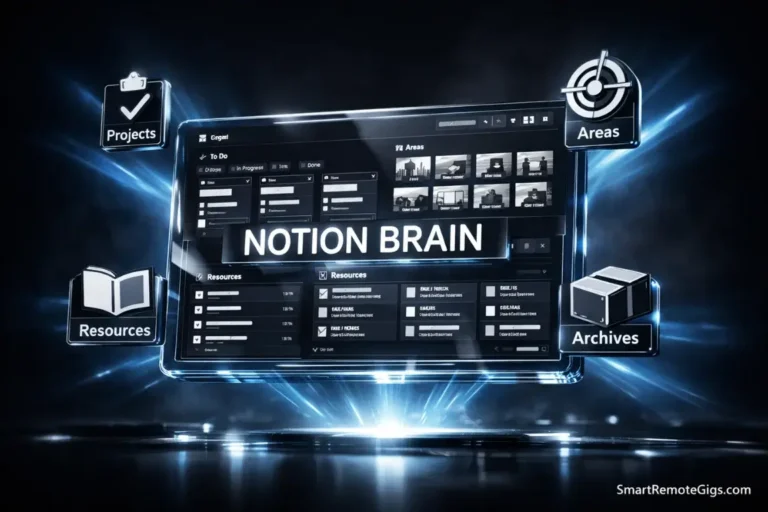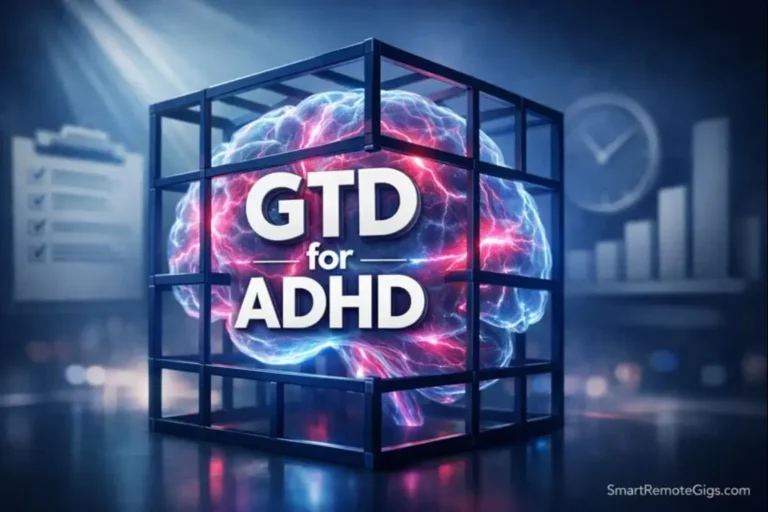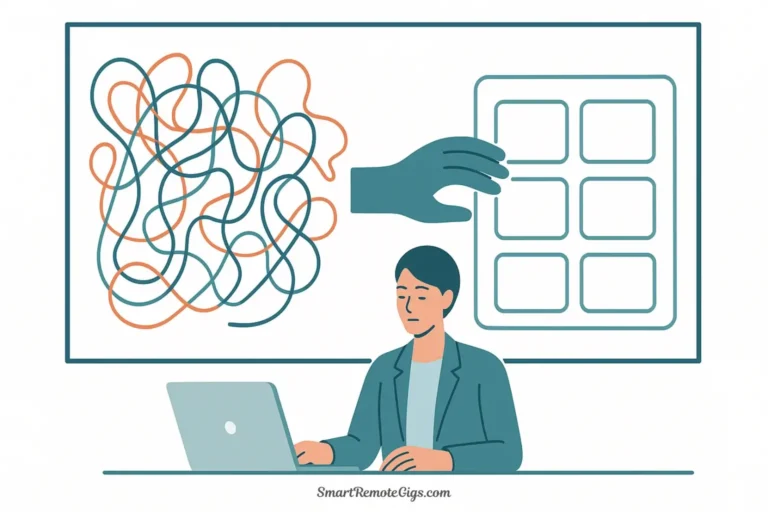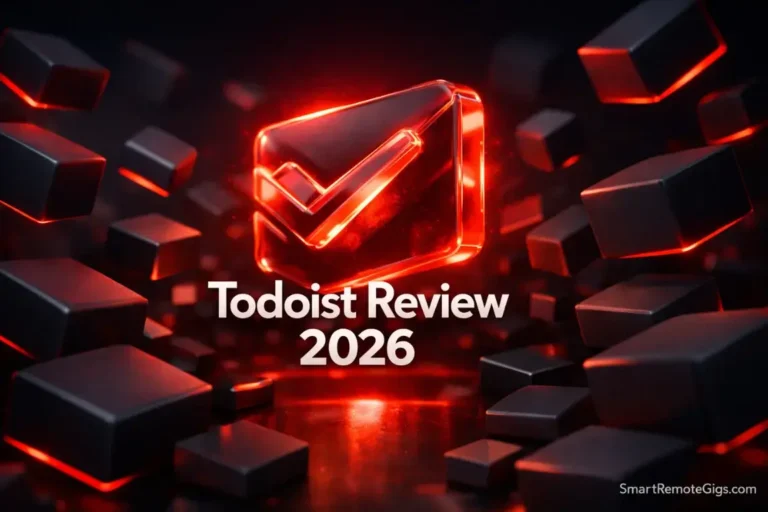Notion isn’t just an app; it’s a lifestyle. You’ve seen the aesthetic screenshots on Twitter. The color-coded dashboards.
But does the tool match the hype in 2026?
In this comprehensive Notion review, I ask the uncomfortable questions. With offline competitors rising and privacy concerns growing, is the ‘all-in-one’ promise still valid?
I’ve been using Notion as my primary workspace for three years. I’ve built content calendars, client databases, habit trackers, and reading lists. I’ve also rage-quit it twice when the internet went down mid-flight.
So here’s my honest take: Notion is still the best tool for teams and project managers, but it’s no longer the obvious choice for personal knowledge management (PKM) due to offline limitations and privacy trade-offs.
Let’s break down what’s changed, what’s stayed broken, and who should actually use this thing in 2026.
The Verdict: 4.6/5 Stars
The Good: Unrivaled flexibility. The new AI integration is a legitimate productivity multiplier. Best-in-class collaboration.
The Bad: Still no true offline mode. “Notion Paralysis” is real. Mobile app is still slower than native notes.
Best For: Teams, Project Managers, Students who love aesthetics.
Skip If: You need End-to-End Encryption or work offline frequently.
The Core Philosophy: Digital Legos

Notion’s secret is its block system. Everything—text, images, tables, databases, embeds—is a block you can drag, nest, and arrange like Legos.
Want a calendar next to a task list? Done. Want meeting notes that auto-populate a project dashboard? Two clicks.
This flexibility is intoxicating. It’s also overwhelming.
The blank page problem is real. I’ve watched colleagues spend three hours designing the perfect workspace structure and never actually use it. I call this “Notion Paralysis”—you’re so busy optimizing the system that you forget to do the work.
Pro Tip: Don’t build from scratch. Start with a template. Building a complex dashboard on day one is the fastest way to quit.
Overwhelmed by the blank page? Use the P.A.R.A. Method to structure your workspace immediately. Projects, Areas, Resources, Archives. Simple framework, instant clarity.
The 2026 AI Update: A Real Assistant?

Let’s talk about the elephant in the room: Notion AI.
When it launched in 2023, it was a gimmick. “AI that writes for you!” felt like marketing fluff for people who don’t actually write.
But the 2026 update (powered by GPT-4.1 integration) changed my mind.
What It Actually Does Now
I dump messy meeting notes into a page. Notion AI turns them into:
- Action items with assignees
- Key decisions in a table
- Follow-up questions organized by priority
It’s not perfect. Sometimes it hallucinates details. But it saves me 20 minutes of manual formatting every single day.
The summarization feature works shockingly well for long documents. I uploaded a 40-page research report, asked for “key takeaways,” and got a usable summary in 15 seconds.
The Pricing Reality
Here’s the catch: the free plan is now essentially a “trial” for AI features.
You get 20 AI responses per month on the free tier. That’s barely enough to test it. Real power requires:
- Plus Plan: $8/month (unlimited AI for personal use)
- Business Plan: $15/user/month (team collaboration + AI)
For teams, the AI alone justifies the price hike. For solo users, it depends how much you value automation over elbow grease.
⚠️ The Elephant in the Room: Offline & Security

This is where Notion’s beautiful facade cracks.
The Offline Problem
Notion is cloud-first. If AWS goes down, or your WiFi cuts out on a flight, you’re locked out of your brain.
Yes, there’s a “cached” offline mode. But it’s unreliable. I’ve lost edits. I’ve watched pages fail to load even though I’d opened them an hour earlier.
Compare this to Obsidian, where every note is a Markdown file sitting on your hard drive. No internet? No problem.
For digital nomads, remote workers in flaky coffee shops, or anyone who travels frequently, this is a dealbreaker.
The Security Reality
Notion is not end-to-end encrypted (E2EE).
Your data is encrypted in transit and at rest, which sounds good until you realize: Notion employees can technically access your notes. For support tickets. For legal compliance. For debugging.
For most people, this doesn’t matter. For journalists protecting sources, lawyers handling client info, or activists in hostile environments, it’s unacceptable.
Warning: If privacy is non-negotiable, stop reading and check our Obsidian Review or read about Standard Notes for military-grade encryption.
Notion’s security is fine for business. It’s not fine for secrets.
Database Power vs. Complexity
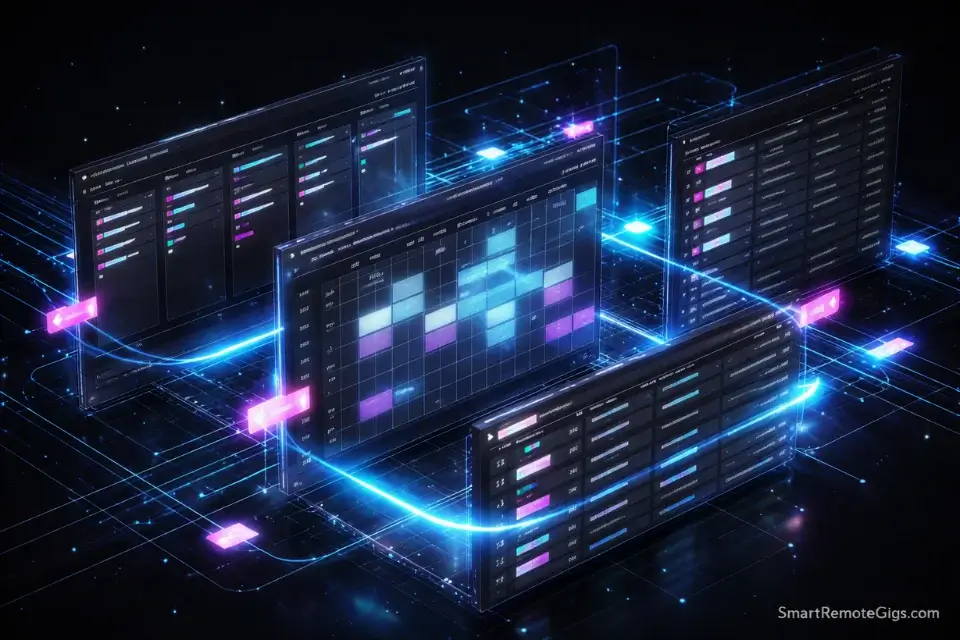
Notion’s databases are what separate it from every other note app.
You can create a single database and view it as:
- A calendar (for deadlines)
- A Kanban board (for task stages)
- A table (for detailed filtering)
- A gallery (for visual projects)
The same data, four different lenses. It’s brilliant.
Where I Use It
I built a content calendar that tracks:
- Article ideas (status: draft, in progress, published)
- Target keywords (SEO metadata)
- Publish dates (calendar view)
- Performance metrics (table view with filters)
One database powers my entire editorial workflow.
The Learning Curve Tax
But here’s the cost: you need to think in databases.
Rows. Properties. Relations. Rollups. Formulas.
If those words make you tired, Notion might not be for you. I’ve taught Notion to teams, and half the people love it. The other half just want Apple Notes back.
For project managers and people who think in spreadsheets? Heaven.
For writers who just want to write? Overkill.
Integration with the Ecosystem
Notion plays well with others, but not perfectly.
What Works
- Zapier: Auto-create tasks from Gmail, Slack, or Trello
- Google Calendar: Embed your schedule (read-only)
- Figma/Miro: Embed design files directly
- API Access: Build custom integrations (developers love this)
What’s Missing
No native email integration. No direct sync with Apple Notes or Google Keep. The Slack integration is clunky compared to dedicated tools.
If you’re migrating from another ecosystem, expect friction.
Moving from the old guard? Read our Evernote to Notion Migration Guide for a step-by-step walkthrough that preserves tags and notebooks.
Debating between structure and freedom? See our Notion vs. Evernote breakdown.
The Competition: How Notion Stacks Up in 2026
Feature | Notion | Obsidian | Evernote |
|---|---|---|---|
Best For | Project Mgmt & Teams | Deep Thinking & Linking | Document Storage |
Offline Mode | 🔴 Weak (Cached only) | 🟢 Perfect (Local Files) | 🟡 Good (Paid Plans) |
Learning Curve | High (Lego Blocks) | Very High (Plugins) | Low (Standard Notes) |
Security | Standard Cloud | Local / Private | Standard Cloud |
Collaboration | 🟢 Excellent | 🔴 Minimal | 🟡 Basic |
Mobile App | 🟡 Functional but slow | 🟢 Fast, native | 🟢 Polished |
Price (Personal) | Free / $8/mo | Free (Sync $8/mo) | $10.83/mo |
The pattern is clear: Notion wins on collaboration and flexibility. It loses on privacy and offline reliability.
Pricing Breakdown: What You Actually Get
Free Plan:
- Unlimited pages and blocks (personal use)
- 20 AI responses/month
- Limited file uploads (5MB per file)
- Basic integrations
Plus Plan ($8/month):
- Unlimited AI
- Unlimited file uploads
- 30-day version history
- Priority support
Business Plan ($15/user/month):
- Advanced permissions
- SAML SSO
- Audit logs
- Private teamspaces
Enterprise (Custom pricing):
- Advanced security
- Dedicated success manager
- Custom contracts
For solo users, the Plus plan is the sweet spot. For teams over five people, Business becomes necessary for proper permissions.
Mobile Experience: Still Playing Catch-Up
The Notion mobile app works. But it doesn’t feel native.
There’s always a half-second lag when opening pages. Editing tables on a phone is miserable. The keyboard constantly covers important UI elements.
Compare this to Apple Notes or Google Keep, which feel instant because they are native apps.
For quick capture, I still use Keep and import to Notion later. For serious mobile work, I bring a laptop.
Who Should Actually Use Notion in 2026?
You’re a Perfect Match If:
- You manage projects with multiple moving parts
- You collaborate with teams regularly
- You love customization and don’t mind complexity
- You have reliable internet access
- You value aesthetics in your workspace
Skip Notion If:
- You need bulletproof offline access
- Privacy and encryption are non-negotiable
- You just want a simple, fast note app
- You work in highly regulated industries (healthcare, legal)
- You hate learning curves
For most people in the middle? Try the free plan for 30 days. If you find yourself designing more than doing, bail out.
The Final Verdict: Still the King?
Notion is the best all-in-one workspace for teams and project managers. Nothing else comes close for collaboration and database power.
But it’s no longer the obvious default for personal knowledge management.
If you work offline frequently, Obsidian is superior.
If you need true privacy, Standard Notes is your only option.
If you just want to write, Bear or Apple Notes will make you happier.
Notion’s strength is also its weakness: it can do everything, which means you’ll spend time deciding how to do everything.
Final Score: 4.6/5
It’s still exceptional. Just not perfect.
Notion
Notion is the ultimate all-in-one workspace for teams and project managers. While it lacks offline mode, its database power and AI integration make it the best operating system for your digital life.
✅ The Good
- Endless Customization with blocks
- Powerful AI integration
- Best-in-class collaboration
- Multiple database views
❌ The Bad
- No true offline mode
- Steep learning curve
- Not end-to-end encrypted

